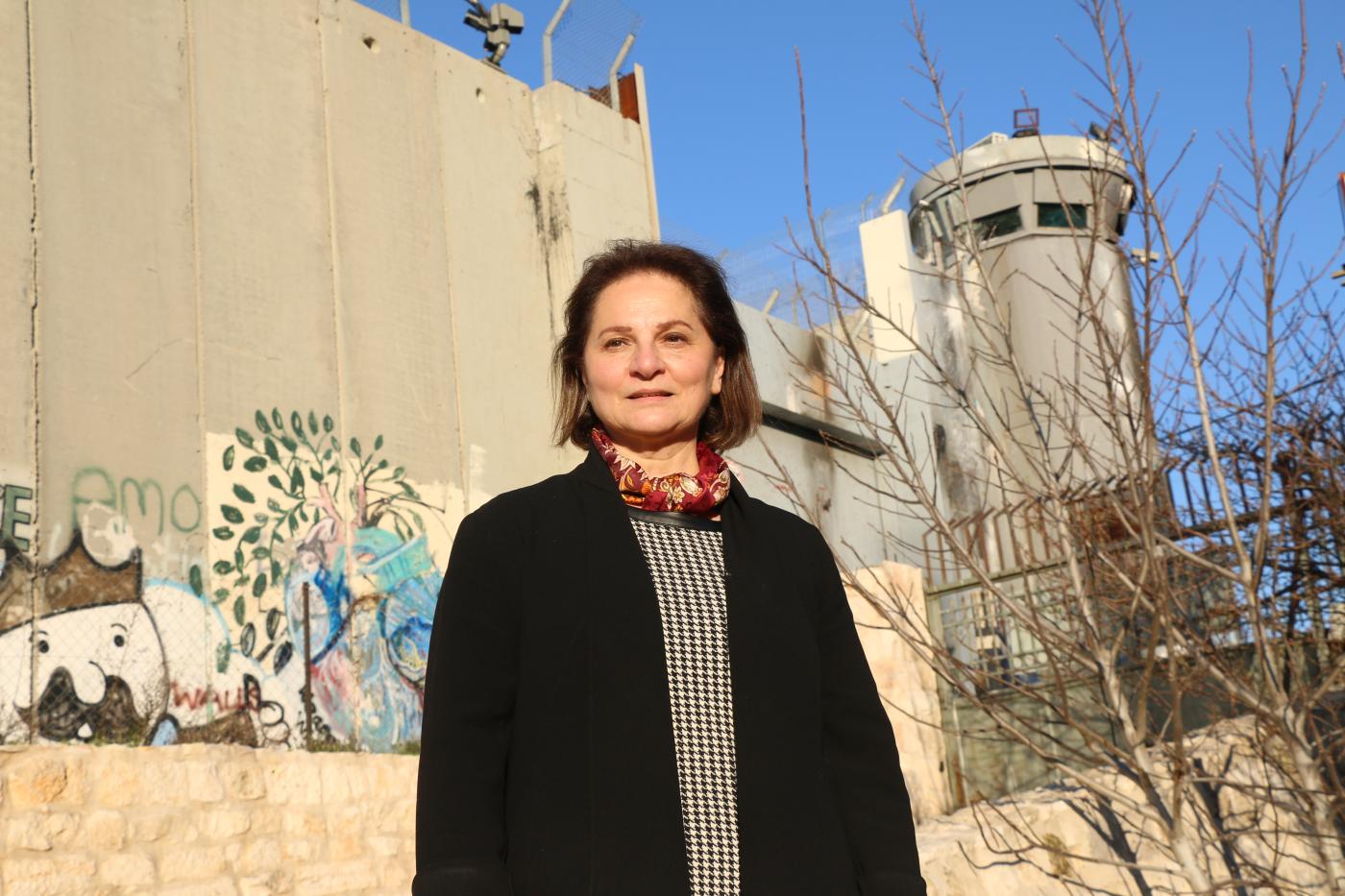For Hind Khoury the issue of water justice is quite simple.
She believes there is no water justice in Palestine because access to clean water for drinking and sanitation exists in Israel but not in the Palestinian territories it occupies.
“The current shared groundwater resources in historic Palestine, that is Israel proper and the occupied Palestinian territories, have since 1967 been disproportionately and unjustly exploited to serve Israel and its colonial settlers.”
Khoury has experience as a government minister in the Palestinian Authority. She served as its ambassador to France for four years, and now fights for a just solution for Palestine as secretary general of Kairos Palestine.
She cites Al-Haq, a Palestinian human rights organization which found that the surface water provided by the Jordan River is diverted to Israel while Palestinians are denied access to this vital resource.
“Gaza’s groundwater resources have dwindled as Israel has hindered the natural flow of groundwater flowing into this underground layer of water-bearing permeable rock.
“As part of its water embargo, later Israel bordered the Gaza Strip with many deep wells and rerouted the Wadi Ghaza waters to its own agricultural fields prior to their arriving in Gaza.”
Khoury took part in the 10 February service at the Holy Redeemer Church in Jerusalem to launch Seven Weeks for Water which this year is focusing on water justice for Palestine.
She singles out Gaza as particularly hit by Israel’s actions to restrict water rights.
“Gaza’s water and sanitation set-up have been subject to Israeli attacks and destruction.
“Overcrowding, the three recent wars and the military siege have triggered a total contamination of the groundwater, so it is unfit for human consumption,” she says.
Because residents resort to drinking unclean water, Gaza has one of the highest rates of waterborne diseases in the world, said Khoury.
In the West Bank, Khoury notes that according to Ma’an Development Centre, Israel, as the occupying power, has also isolated hundreds of wells, prohibiting Palestinians from using them.
“Israel decides the siting of wells and their depths – and these decisions, of course, favour Israeli settlement companies.”
That is why she advocates “creative resistance” against the injustice of Israeli occupation which has led to this unjust discrepancy in the rights of Israelis and Palestinians to water.
WCC campaign Seven Weeks for Water: www.oikoumene.org/7-weeks-for-water
WCC Pilgrimage of Justice and Peace: www.oikoumene.org/pilgrimage









